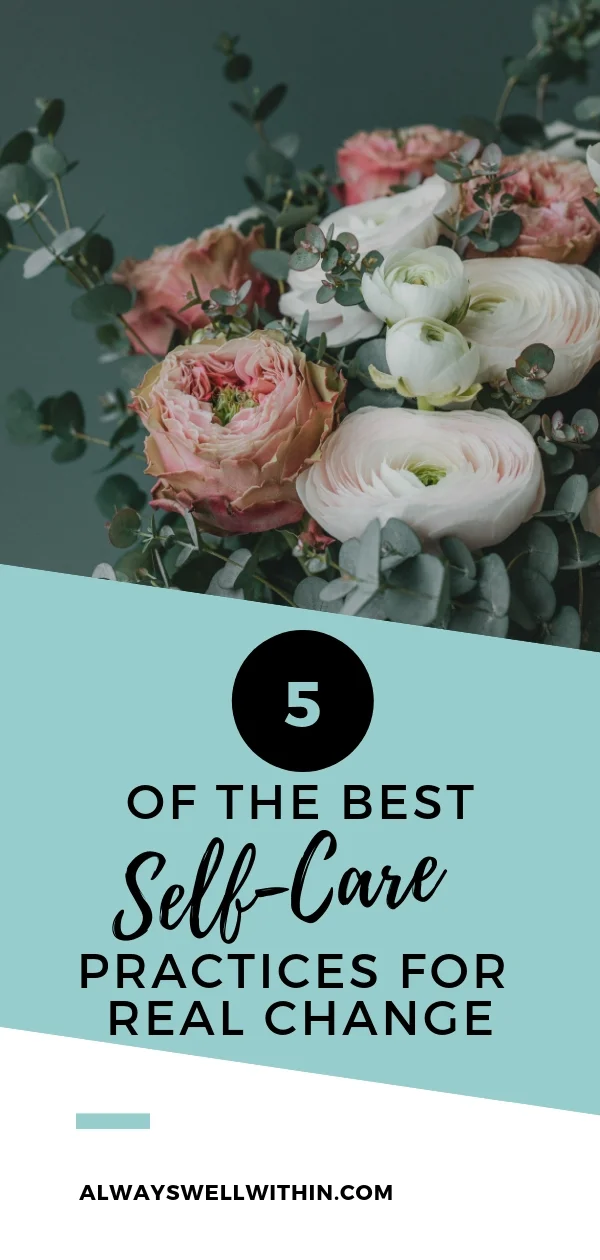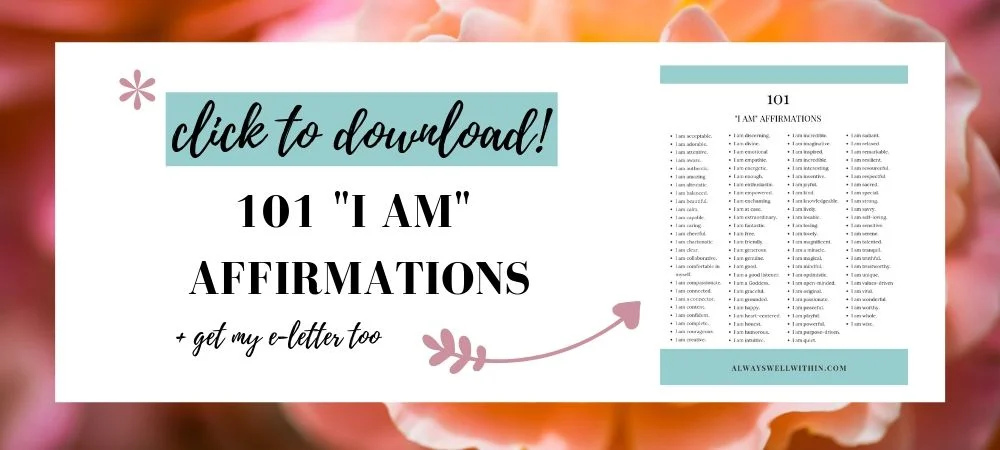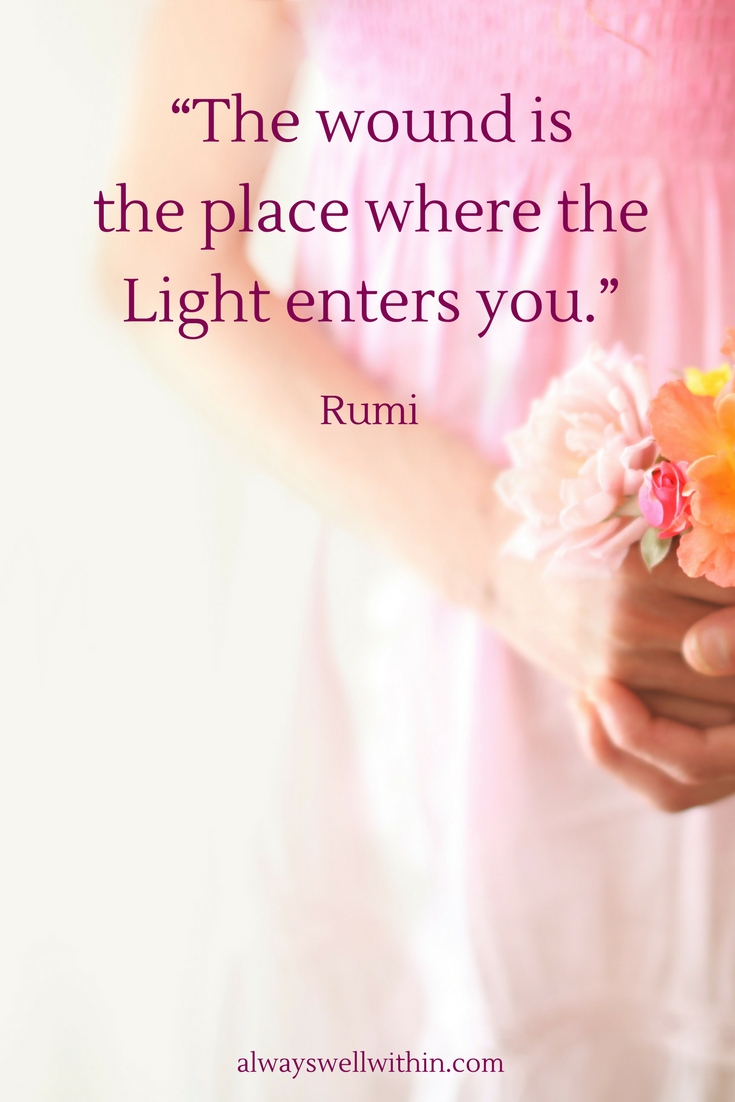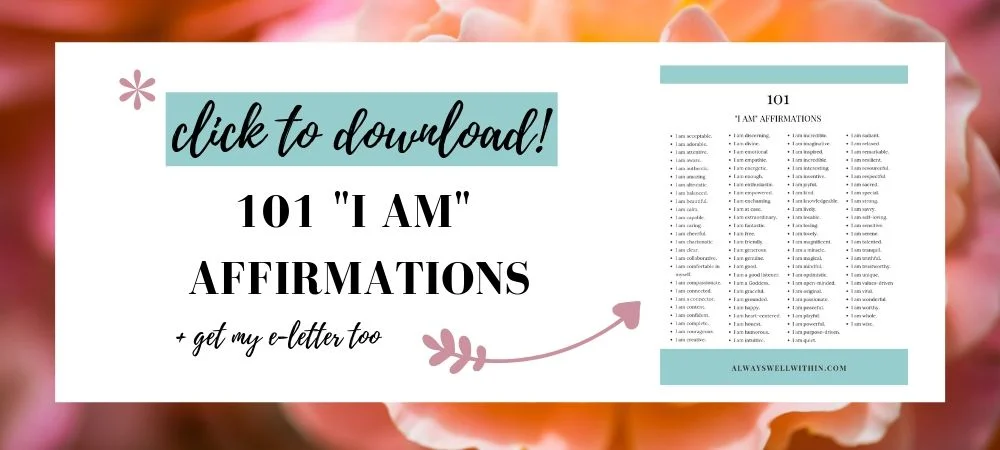5 of the Best Self-Care Practices for Real Change
Do you associate self-care with physical activities like a restorative nap, a soothing bath, or time in nature? Maybe, to you, self-care means buying something nice for yourself, or pulling out a coloring book to reduce stress.
Physical self-care is important, indeed. If you’ve established a healthy body care routine, you rock. It takes self-love, self respect, and determination to successfully do this.
But sometimes, physical self-care can be like a band-aid that falls off after a few days, before your wound is healed, if you never take the time to look deeply within. It doesn’t necessarily reverse unhealthy beliefs, debilitating thoughts, and disabling emotions. In fact, your healthy routine might even fall away when you inner dictator gets the best of you.
A complete approach to self-care needs to include ways to heal your wounds, support a budding sense of positive self-esteem, and encourage you to express your own voice.
I call this deep self-care.
It may not feel as fun and sexy to face your wounds, traumas, confusions, and inconsistencies as it does to buy a new dress. But when you take time for deep self-care, you gradually feel lighter, shine brighter, and allow more goodness into your life. Physical self-care comes more easily too because you already feel well in your skin.
If you’d like to experience real change in your life, consider where you’re at with these 5 deep practices of self-care, and how you can take them a step further.
Self Responsibility
As long as you blame others for whatever occurs in your life and for your internal feelings about what has happened, you remain a victim. It’s difficult to feel in control and empowered to move around the chess pieces to configure a new game from a place of victimhood. Even if you’re able to change the circumstances, you’re likely to unconsciously repeat the same patterns again.
Does everything happen for a reason? I don’t know. But I do know we can use whatever occurs as a vehicle for personal and spiritual growth. That doesn’t immediately banish anger, pain, hurt, or sadness, but if you’re able to own these emotions instead of projecting them outwardly, you’ve empowered yourself and have taken a big step forward.
That doesn’t mean your emotions are never justified. After all, we don’t live in a vacuum, our actions effect one another. But it won’t serve you to amplify negative emotions. Nor is it helpful to suppress them. Let them arise, feel them, be aware of them, but don’t allow them to catch you in their insidious net of distress.
Slowly, you can learn to observe the transitory nature of all these difficult emotions, and begin to feel a little more space between yourself and the experience of the emotion. That is the first taste of emotional freedom! If you need help with this, read 21 Meditation Tips You Need to Know As A Beginner.
On a scale of 1-10, how responsible are you for yourself?
What are three steps you can take this month to expand your sense of self-responsibility?
Authenticity
Authenticity won’t necessarily feel comfortable at first so step forward gently. You can only be as authentic with others as you are with yourself.
If you’re hiding yourself in some way, think of one small step you can take to be more honest with yourself and others. It doesn’t have to be grandiose at first. It could be as simple as saying what you would really like for dinner, that you prefer one movie over another, or that you don’t actually want to go to a particular event.
Authenticity is a nuanced and layered process because so much is hidden from our conscious mind. You can’t tell all because you don’t know all. As you peel away negative or limiting beliefs, you’ll gradually be able to be more authentic.
Sometimes, I find it difficult to be authentic because I feel confused. I don’t know what I want or what I truly feel. Sometimes, I see my emotions changing day-to-day as circumstances unfold. When this is the case, I try to wait patiently for clarity to emerge. It might take minutes, hours, or even weeks, but you’ll feel stronger when you can speak or act from a place of coherence.
When I have the courage to be authentic, things almost always work out better for everyone involved. By authentic, I don’t mean brutally honest or insensitive. Usually, there’s a graceful way to frame what I wish to say. It’s taken practice and has required the willingness to pause and reflect in order to find a gracious way to express myself.
Authenticity is an essential facet of self-love and self-care, isn’t it? When we love ourselves, it’s easier to be more authentic. And when we are more authentic, it’s easier to love ourselves. So let’s set this circle in motion and practice greater authenticity starting now.
Are there any areas of your life right now where you are trading your authenticity for safety, or what appears to be safety?
What holds you back from being more authentic?
Think of a concrete situation and how you could express yourself more authentically within it.
Making Time for You
You need time for self-discovery, relaxation, and enjoyment if you want to blossom into your truest self. But often we place our commitments to others above our commitment to our self due to a neurotic need to please or be accepted. That might work sometimes, but often it backfires.
You might get so caught up in acting on what you believe to be the expectations of others that you burn yourself out. Or you might end up feeling resentful instead of loved and accepted.
Sometimes, we fail to make time for ourselves because we’re afraid to look within. What will you find? Can you endure the pain? Will you be able to handle it? Will it truly make a difference or is it better to leave the proverbial sleeping dogs at rest?
You need deep self-care to effect real change
Owning up to your wounds can be painful for sure. Let’s not pretend otherwise. But when you look at your wounds with curiosity, love, and self-compassion, the pain will subside over time as your self-esteem and self-confidence grow. Eventually, you’ll free yourself from the pain.
Are you making time for yourself?
How much time do you need each week?
If you’re not making time for your personal growth, what beliefs are holding you back?
Replace Negative Beliefs
We all acquired limiting beliefs about ourselves or how the world works as a child. As self-defeating as it may be, we continue to act out of those limiting beliefs because they have been thoroughly installed in our brain through repetition. More often than not, those limiting beliefs lead to unhappiness.
Unhealthy thinking comes in endless variations. Here’s just a few to give you an idea:
No one loves me.
I have to be perfect.
If I do the wrong thing, I’ll get in trouble.
If I’m successful, I’ll be loved and accepted.
I can’t do anything right.
These thoughts aren’t necessarily true! Isn’t it crazy to have your life ruled by false beliefs?
It’s time to question the validity of these thoughts. In fact, when you begin to examine your false beliefs, you may have an “aha” moment in which you fully realize the nonsense you’ve been feeding yourself.
One way to deal with limiting thoughts is to replace them with friendlier and more accurate ones. Every time the limiting thought comes to mind, pause, take a breath, and replace it with a kinder one. Try “I AM” affirmations, which really go to the core of our false beliefs about ourselves.
This may sound tedious, but it can actually become fun when you decide you no longer want to let your life ruled by this rubbish.
Since you’ve already repeated the negative thought thousands of times, you’ll need to repeat the positive one regularly to change the grooves in your brain. Yes, this takes dedication, but you can do this, and it can make a big difference in your life.
Make a list of 1-3 limiting beliefs that impact your life in undesirable ways.
If you wish, explore the origin of each belief in your journal.
Ask yourself, “Is this belief really true for me today?”
Finally, make a list of positive counterbalancing beliefs to address each one.
Then, whenever the limiting belief comes to mind replace it with the kinder one.
If you need ideas for positive beliefs check out:
How to Heal Your Heart and Mind with the Best “I AM” Affirmations
8 Positive Affirmations to Make You Feel Like You Are Enough
If you find it difficult to overcome negative beliefs on your own, consider working with a therapist. Sometimes, we need to explore our wounds in a safe setting and find healing before we can successfully replace negative thoughts with positive ones.
Boundary Setting
You need personal boundaries to protect yourself and create a meaningful and satisfying life. Boundaries enhance your sense of safety, inner peace, and well-being. They support self-confidence, self-expression, and positive relationships. Boundaries are necessary to achieve your full potential and stay on track with your life purpose.
You can think of a boundary as a line you create that separates you from other people, places, or things that are not in your best interest, including your own inner critic or unrealistic demands. The individual, situation, or thing is not necessarily “bad.” But it’s not a good fit for you.
Without healthy boundaries, you may be easily manipulated, controlled, victimized, discounted, or drawn off track from your own life mission.
If you’re not accustomed to setting boundaries, it may feel impossible at first. Setting boundaries felt very difficult for me, but it got easier with each execution.
In the beginning, I wrote a script and rehearsed it ahead of time. For example, I wanted to stop working with an acupuncturist who felt out of sync with me, but I felt afraid and obligated to finish our prescribed number of sessions. Instead of blaming the acupuncturist, I told him I had received what I needed. After all, he might be perfect for someone else, so there was no point in arguing about his personal style. He just wasn’t a good match for me.
The key with setting boundaries is to keep it simple. You don’t need to explain yourself or make the other person wrong, either of which can make for a more complicated or tense interaction. One clear sentence communicated with clarity and confidence will get the job done.
On a scale of 1 to 10, how would you rate your ability to set boundaries?
What’s behind your hesitancy to set boundaries in general or in a particular situation?
Think of one boundary you would like to set, write a script for how you will communicate it, and put it into action this week.
Balance Deep Self-Care with Ease
Balance deep self-care with physical self-care and spiritual inspiration, so you don't become too mental or inwardly obsessed. Deep self-care will likely bring up pain at times, so be sure to support yourself with with relaxation, pleasure, and fun as well. Don't forget to love yourself through the process and appreciate how much courage you have.
We may never get to an end point when it comes to deep self-care because there’s always more to unveil within. We will, however, get better and better and better. How good is that?
Where are you at with these 5 practices of deep self-care? I would love to hear.
Thank you for your presence, I know your time is precious! Don’t forget to sign up for my e-letter and get access to all the free self-development resources (e-books, mini-guides + worksheets) in the Always Well Within Library. May you be happy, well, and safe – always. With love, Sandra







